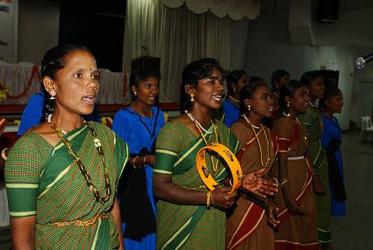Displaying 1 - 11 of 11
14 November 2019
In Argentina, stirring journey for human rights continues
01 September 2017
Plans for 2017 decided by WCC Executive Committee
01 December 2016
Winners of WCC photo contest announced
09 May 2016
Churches celebrate Week of Prayer for Christian Unity
23 January 2013




